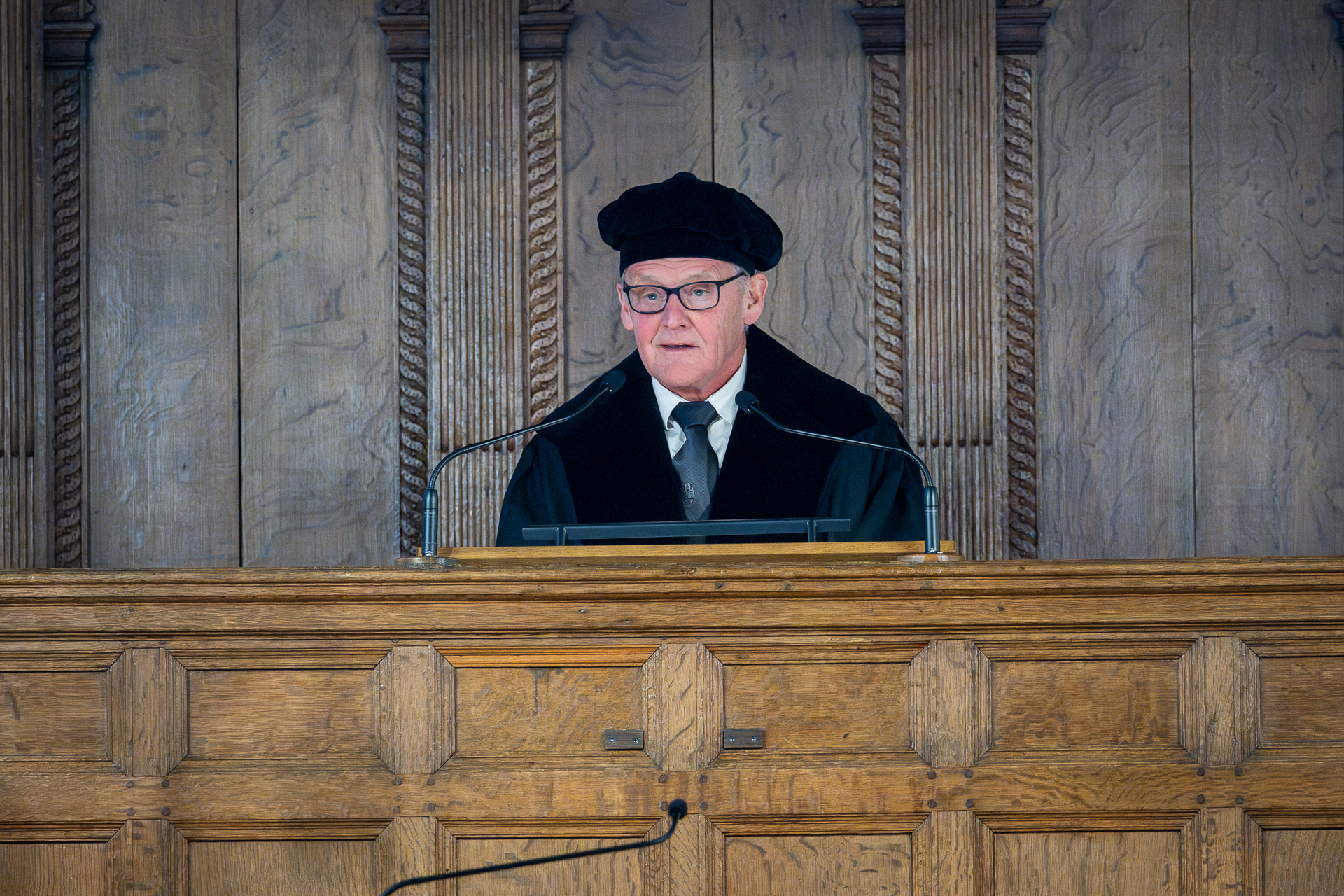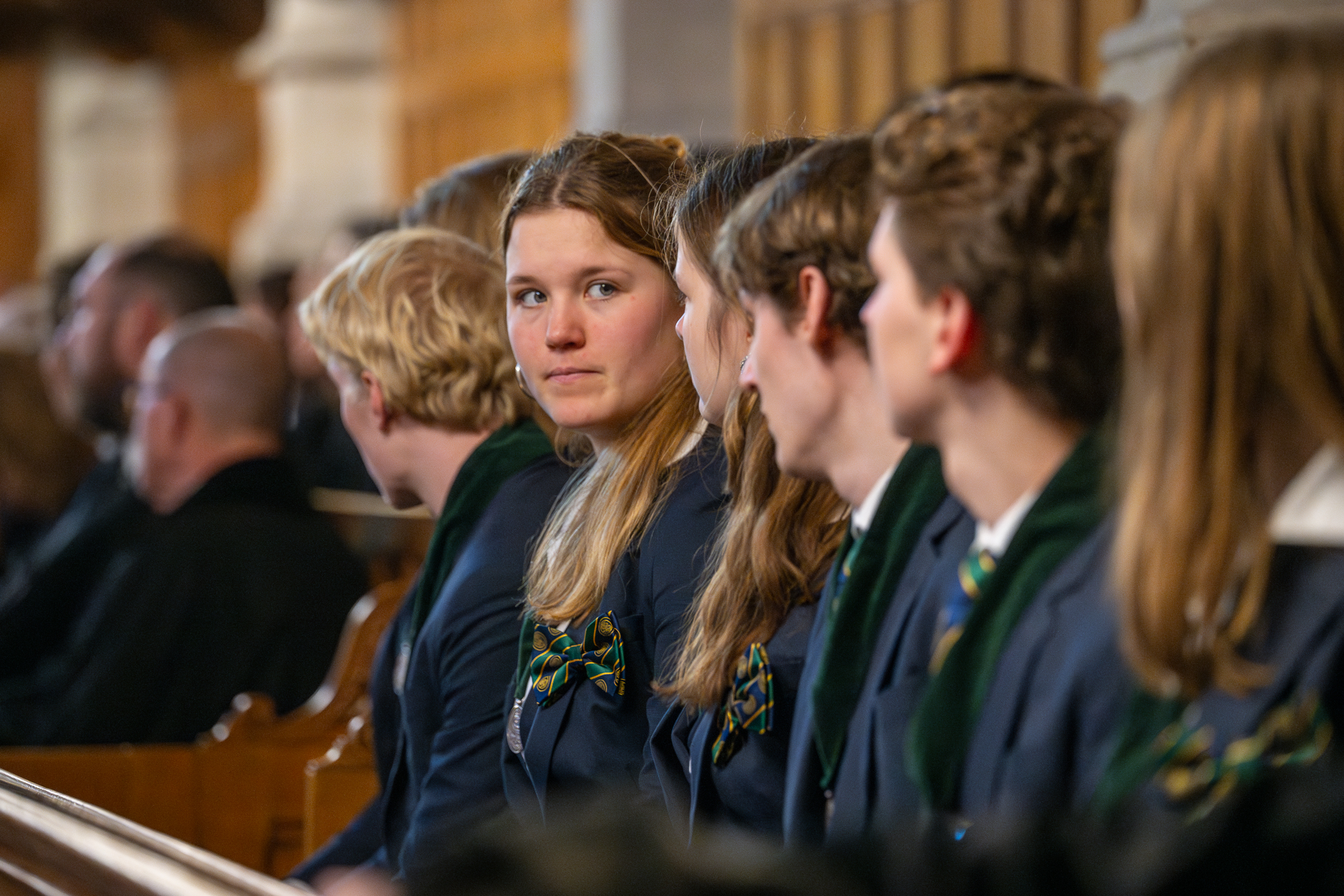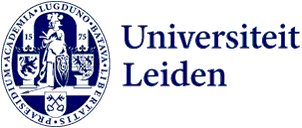
Cleveringa Professor: Holocaust remembrance has led to very different political lessons
From memorials to the armed forces to memory stones for individual victims. It was only later that the Holocaust took a central role in Western remembrance culture, Cleveringa Professor Frank van Vree notes. ‘Nationalists and human rights activists both invoke the experience of the Holocaust.’
Anyone reflecting on history soon discovers this is a minefield. Especially when it comes to the Holocaust and our relationship with it, both then and now. Van Vree used to be the director of the Institute for War, Holocaust and Genocide Studies. Would he also address the Gaza War? This topical question hung in the air in a packed Academy Building. This was the spot where, on 26 November 1940, law dean Rudolph Cleveringa gave his protest speech against the dismissal of Jewish staff, starting with Professor Eduard Meijers who was supposed to be giving a lecture there (see below).
Is history a source of identity or critical reflection?
Shifting tribute
Our reflections on the Second World War keep changing as time passes, said Van Vree in his inaugural lecture. ‘In the first post-war decades, the actions of people like Cleveringa mainly served as an illustration of the country’s courage, as confirmation of our identity.’ The first Dutch war memorials were primarily a tribute to the resistance fighters and members of the armed forces, ‘who gave their lives’. The remembrance culture changed from the 1960s onward, with much more attention being paid to the millions of Jewish victims of persecution. Numerous memorials sprung up, such as the curled rails at Camp Westerbork that remind us of the terrible Nazi deportations and genocide.
Auschwitz
The Holocaust as a term for this dark period of history only took hold after the American TV series of the same name in 1978. This was followed by a flood of publications, testimonies and films with a very different perspective from the nationalistic heroism of the earlier memorials. ‘Auschwitz moved to the heart of Western remembrance culture’, said Van Vree.

Symbol of evil
This shift mainly resulted from societal and political processes and signified, ‘an asymmetry between what we know and what we consider to be important’, as Van Vree put it. ‘In many cases’, he added, ‘the intricate history of Nazi persecution and extermination has shrivelled into a terrifying yet misunderstood story, which serves as a one-dimensional and apolitical symbol of evil.’ It is due to this ignorance, he noted, that many fail to understand the complexity of this history and how it came about, let alone learn unequivocal lessons from this.
The Holocaust as a term only took hold after the American TV series of the same name
Source of human rights or nationalism
‘This seemingly shared culture of remembrance conceals very different political orientations’, said Van Vree. He went on to note that the Holocaust can serve as a source of legitimacy for a political morality based on the principles of universal human rights, but equally as a source of identity politics and nationalism.
‘In Israel, this has led for years to fierce clashes between nationalists, on the one hand, and human rights organisations and peace activists, on the other, both of which invoke the Holocaust.’ The different orientations manifest themselves everywhere, he notes, creating tension and division all around the world because they shape attitudes toward Israel, Palestine and Hamas.
At least 663 of Leiden University’s students, staff and alumni perished in the Second World War. Before Van Vree’s inaugural lecture, Rector Magnificus Hester Bijl looked back at the university’s Cleveringa tradition. The university has appointed a Cleveringa Professor since 1970 to commemorate the suffering and resistance. Physician Ton Barge and theologian Lambertus van Holk also gave public protest lectures on 26 November 1940. More about this in Leiden University and the war.
-

Cleveringa Professor Frank van Vree -

Students in the auditorium -

Rector Magnificus Hester Bijl speaks to the full auditorium -

Professors in the auditorium -

Cleveringa Professor Frank van Vree
Holocaust inevitable part of the discussion
Van Vree noted the frequent appeals that have been made lately to keep the Holocaust out of the discussion and political rhetoric. He does not think this is possible. ‘What is more, the Holocaust is a permanent and inevitable part of these discussions and confrontations, albeit in very different ways.’ For example, the Holocaust as a source of political opinion is causing discord in the world. ‘A bleak conclusion – but also a lesson from history, an insight that at least helps us understand what is happening now.’
Photos: Monique Shaw
Text: Linda van Putten
